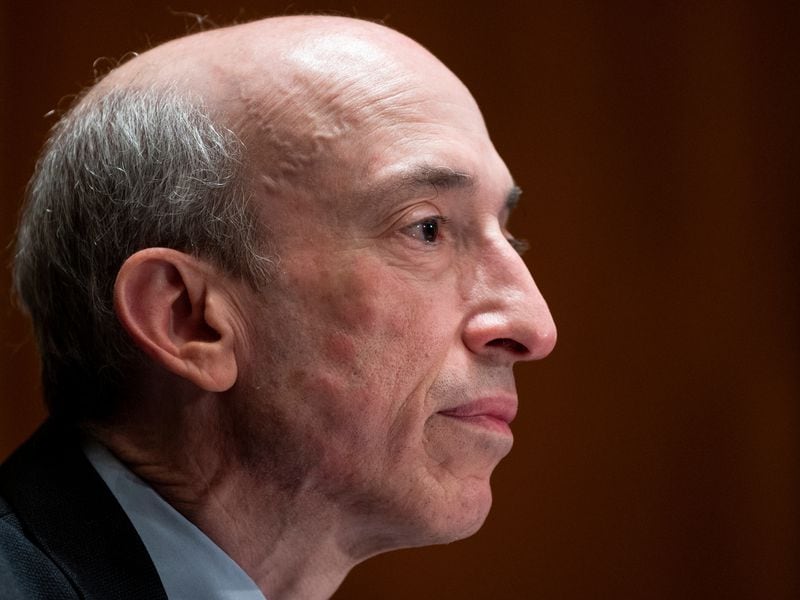-
One of President-elect Donald Trump’s many promises — to fire Gary Gensler and appoint a new chair of the U.S. Securities and Exchange Commission — could happen as soon as Jan. 20, the day of his inauguration.
-
Gensler, for example, took office less than 11 weeks after being appointed by President Joe Biden on Feb. 3, 2021.
-
Gensler could also step down before Trump takes office, in which case the Democratic Party would appoint an interim chair.
U.S. President-elect Donald Trump’s many endorsements from crypto leaders — the Winklevoss twins, Marc Andreessen and Ryan Selkis, just to name a few — were the result of the real-estate mogul’s many promises to support the expansion and continued development of the digital asset industry in the United States.
Arguably one of the most crucial promises Trump made to pull the crypto community onto his side was this: “On day one, I will fire Gary Gensler.”
While he can’t force Gensler to step down as a commissioner at the U.S. Securities and Exchange Commission, he can name a new interim SEC chair as soon as he’s inaugurated on Jan. 20. He can also nominate a new commissioner to the Senate, which has to confirm the pick.
Given Republicans have retaken control of the Senate after flipping several seats during Tuesday’s presidential election, Trump’s pick would have a good chance of making it through the vote and a new chair could take office within a few months.
Gensler, for example, was nominated by current President Joe Biden on Feb. 3, 2021, confirmed by the Senate on April 14 and sworn into office on April 17.
Gensler has made many enemies in the crypto sector due to his insistence that the agency has sufficient rules and regulations for the industry already, a status quo crypto leaders disagree with. One of the most fundamental differences is Gensler’s insistence — one he shared with his predecessor, the Trump-appointed Jay Clayton — that most cryptocurrency transactions on centralized exchanges violate federal securities laws.
Excluding this year’s launch of the spot bitcoin and ether exchange-traded funds, which were approved by the current SEC after years of conversations and a legal victory by asset manager Grayscale, the financial regulator hasn’t done much to help stir crypto companies in the right direction of what is legal and illegal, as it has yet to be determined whether all cryptos are securities or not.
Gensler has been on the forefront of those actions, being openly skeptical of cryptocurrencies. Just last month, he reiterated his views haven’t changed. Speaking at NYU’s School of Law in Manhattan in October, he said: “With all respect, the leading lights of this field in 202[4] are either in jail or awaiting extradition right now.”
Knowing Trump’s plan for him, Gensler could also choose to resign before the new President takes office in January. If that were to happen, an interim chair would be appointed by President Joe Biden from the remaining Democratic commissioners until Trump is inaugurated, before Trump names his interim after taking office.
Whoever Trump nominates would probably replace Commissioner Caroline Crenshaw, who is currently up for renomination. If Gensler resigns from the commission entirely, he’ll also need to be replaced through the nomination and confirmation process.
A number of cryptocurrencies that the SEC named as unregistered securities in various lawsuits against exchanges have seen their prices rise over the past day or so, including Filecoin (FIL), Algorand (ALGO), Polygon (POL) (formerly MATIC) and Near (NEAR), possibly in anticipation of a more lax regulatory regime under the Trump administration.






























